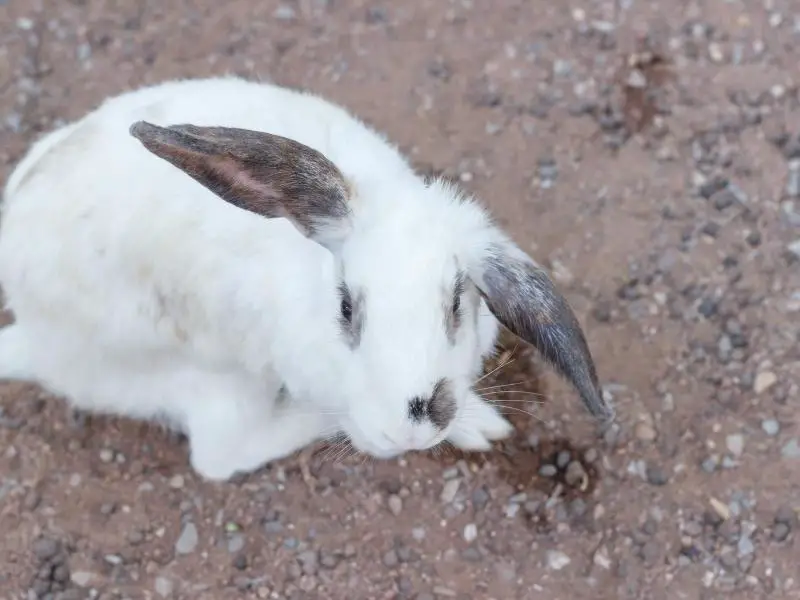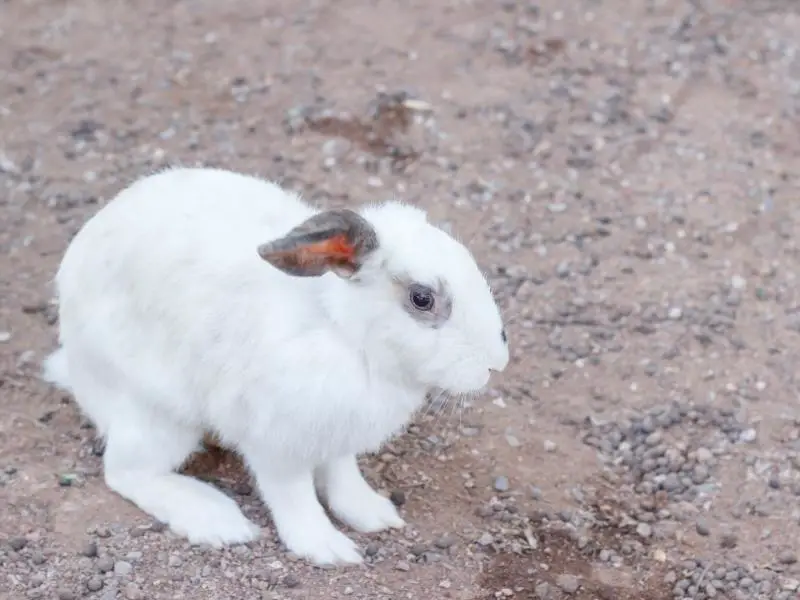Your floppy-eared friend can be a bundle of mischief, and watching them play is rewarding. Have you ever noticed your bun leaping into the air like an acrobat, shaking its body like crazy, and speeding off into the distance? And now you are wondering why they were shaking.
So why does a rabbit shake?
Rabbits shake for different reasons such as stress, fear, and when they are nervous. They will also shake when the temperature is too hot, as they don’t tolerate the heat well. Shaking can also be a more serious sign that a rabbit is experiencing digestive issues or has ingested something toxic.
This guide will provide you with all the information you need about why rabbits shake and what to do about it.
Reasons Why Your Rabbit Is Shaking
Owning a bunny is different from owning a dog; rabbits aren’t as expressive as dogs are. As a bun owner, you will need to familiarize yourself with your bun’s behaviors to tell what’s going on with them.
Shaking is a common behavior with rabbits, but the trick is to know why they are shaking and whether you need to be concerned.
So let’s take a closer look at why your floppy-eared friend is shaking:
Frightened
Rabbits are very sensitive animals, and they are easily spooked by things such as:
- Sudden loud noises
- Fast movements
- Other pet’s
- Loud children
- The smell of a potential predator
If your bun is frightened, it will begin to shake, which will only stop when they’ve calmed down.
Another sign to look out for if you suspect your bun is frightened is that their nose will also vibrate.
It’s Too Hot
Your bun doesn’t tolerate the heat well in summer. When the temperature goes over 80℉, it will put your bun into a state of distress, which causes them to shake or tremble.
Rabbits can’t regulate their body temperature through sweating, so they rely on vasodilation (dilation of the blood vessels in the ears). Essentially, the rabbit shakes its head and runs.
You will know if your bun is overheating when you see these symptoms:
- Shaking their head
- Shaking their ears
- Redding of the ears
- Panting
- Drooling
- Trembling or shaking
If you don’t move your bun into a cooler area, they can suffer from heat stroke. If left untreated, it can lead to more severe symptoms such as:
- Convulsions
- Dizziness
- Death
Hiccups
This one can be tricky as it’s hard to tell if your bunny is shaking or if they simply have a case of the hiccups.
Kits (baby rabbits) are more likely to suffer from hiccups than older bunnies, and this usually isn’t anything to worry about.
When a bun experiences hiccups, it will shake its head and move from side to side. In severe cases, it can cause their whole body to shake.
Hiccups that happen occasionally do not cause concern, but if it becomes a regular occurrence, it can be a sign that your rabbit has:
- Eaten too much of the wrong kind of food
- An upset stomach
Angry
Bunnies express their anger toward something by twitching or shaking their heads from side to side. They might take their anger out on the thing that has angered them by nibbling at it.
If your bun is cross, they will start thumping their hind feet on the ground as a warning.
What to Do When Your Rabbit Is Shaking?

First, it’s essential to establish why your bun is shaking and if the shaking continues after the cause has been removed or handled. Keep a close eye on the way your bun is shaking.
Here’s a look at some of the types of shaking your bun can present with and what you should do next:
Trembling
If you watch closely, you will notice that your bun’s body is vibrating.
If the vibrating isn’t intense, this is more of a symptom of stress.
To calm your bun down, do the following:
- Speak gently and reassuringly to your bun
- Let your bun come to you
- Pet their head gently
- Don’t pick them up
Twitching
You might notice your bun running around, and then they make sudden, jerky movements while shaking their heads and flicking out their feet.
If your bun does this and then flops onto the ground lazily, then there is nothing to be concerned about, as this is often how your bun displays excitement or happiness (also known as binkying).
Rippling
Rippling is another type of normal shaking in rabbits. If your bun suddenly feels a chilly gust of wind, it can cause its skin to ripple in response.
Your bun will be lying down and suddenly sit bolt upright when this happens.
This is perfectly normal and very similar to when we experience a cold shiver and develop “goosebumps.”
When to Seek Professional Help for a Shaking Rabbit?
Not all shaking in rabbits is good, and it’s vital to ensure that you pay attention when they shake to avoid unwanted consequences to your bun’s health.
Let’s take a closer look at when it’s time to seek professional help for a shaking rabbit:
Convulsions
There is a big difference between shaking and convulsing.
When your bun shakes, it’s more of a vibrating, swaying movement.
If your bun is convulsing, it’s a sudden and violent form of shaking. This is never a good sign, and you must get your bun to the vet immediately.
Ear Infections or Mites
Occasional head shaking is normal, but if your bun continues to shake their heads and scratch at their ears, this is a sign of ear mites or ear infections. If your bun has long ears, they are more likely to develop ear infections.
To help your bunny stop shaking, you must take them to the vet for treatment.
Gastrointestinal Stasis
Gastrointestinal stasis (GI) is caused when a rabbit eats the wrong food, has poor nutrition, or consumes something toxic.
If this is left untreated, it can lead to twitching and shaking. Your bun’s digestive system will cause muscular contractions to try and fix the issue.
A few signs you should watch out for are:
- Teeth grinding
- Watery diarrhea
- Hunching over
- Laying down
- Lethargy
- Lack of appetite
If any of these symptoms follow the shaking, you need to get your bun to the vet as soon as possible, as this is one of the main causes of death in rabbits.
My Last Bunny Thoughts
Shaking is very normal behavior for rabbits (and it’s cute to watch). This can also be a symptom of something more serious.
It’s crucial for you as a bunny owner to keep a close eye on your bun and monitor them when they shake.
Rabbits are sensitive animals, and unfortunately, because they have such fragile digestive systems, they can get sick easily.
If you are worried about your bun and the shaking makes you anxious, then it’s always best to seek veterinary assistance.
Related Articles:

